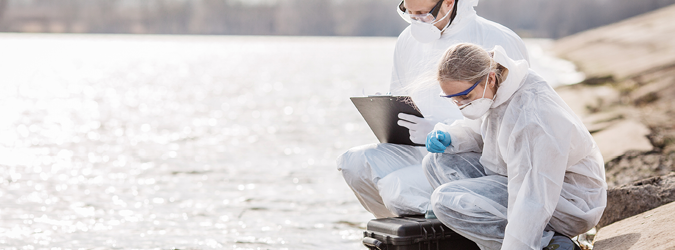Milieudefensive v. Royal Dutch Shell Highlights New Strategies In Climate Change Litigation
5.22.2023

Around the world, lawsuits are seeking damages and mitigation for the effects of climate change. So far, most of these lawsuits have been against governments, to prevent new construction or to seek compensation for damage already done.
But in a notable case in the Netherlands, Milieudefensive v. Royal Dutch Shell, the plaintiffs argued that the Shell oil company is actively contributing to climate change, and thus must change its actions to avoid future damage to the environment. The Hague District Court ruled in the plaintiffs’ favor, saying that Shell must work to reduce its carbon emissions by 45 percent by 2030.
The effects of this landmark ruling, and other climate change litigation, were the topic of discussion at a Continuing Legal Education course hosted by the New York State Bar Association. It was sponsored by the International Section and the Environmental and Energy Law Section.
The panelists included:
- Professor Michael B. Gerrard of Columbia University in New York City
- Rodrigo Carè of Horizons & Co. in Dubai, United Arab Emirates
- Marieke Faber of NautaDutilh in New York City
- Dr. Maria Antonia Tigre of Columbia University in New York City
Milieudefensive, the Dutch branch of the nongovernmental organization Friends of the Earth, as well as other NGOs, filed the class-action lawsuit against Shell in April 2019. Hearings were held in December 2020, and the final ruling that Shell must reduce its carbon emissions came in May 2021.
“This has nothing to do with what Shell did in the past,” said Faber. “Or what damage can be attributed to Shell. It is about the part that Shell plays in global emissions. But it is very much about the future and mitigating and reducing that impact going forward.”
The court used human rights law, the duty of care enshrined in Dutch law, and the 2015 Paris Agreement for the legal basis of its decision. The goal of the Paris Agreement is to limit the rise in global temperature to under 1.5 degrees Celsius. Warming has already reached 1.2 degrees.
Shell has appealed the ruling. A hearing is expected around the end of this year, with a judgment expected by the end of 2024. Shell has also moved its headquarters from the Netherlands to the United Kingdom.
Faber said that the court’s use of the Paris Agreement helps clarify how it applies to corporations and countries. “It did not find that Shell was bound by the Paris Agreement,” she said. “That is still far removed but it does add to the international consensus as to what states can be held responsible for. And as we see more and more, that can also translate to what corporations can be held accountable for. The Shell judgment and the Urgenda judgment, in that respect, are two sides of the same coin.”
Urgenda v. State of Netherlands, was an earlier case in which the Dutch state was ordered to cut carbon emissions by at least 25 percent in 2020. The ruling was based on the court’s interpretation of the European Convention on Human Rights, which guarantees a right to life and a right to family life. Faber said the Milieudefensive ruling built off this decision.
“In very brief, the court said: if the Dutch population is in real danger, there is a real and immediate risk from climate change,” said Faber. “Then as a state you are obliged to take measures to prevent that risk from materializing. And climate change, even though it is a future risk, qualifies.”
Therefore, the court ruled that the Dutch government must do everything in its power to reduce the danger from climate change. “And the court went further than that,” said Faber. “It quantified that obligation.”
More Climate Change Litigation Around the World
Gerrard explained that climate change litigation took off in 2007 and has since increased every year. More than 2,200 lawsuits have featured climate change, with most coming from the United States.
In Peru, farmer Saúl Luciano Lliuya has sued the German utility company RWE, seeking compensation for adaptation costs related to protecting his town from melting glaciers. The case was filed in 2015.
The German district court initially found the claim inadmissible, but a higher court reversed the decision. “The court acknowledged that a private company is, in principle, responsible for its share of climate damages resulting from its emissions,” said Tigre. “Which in of itself is an important development in global climate litigation as well.”
The case has moved into the evidentiary phase, and judges, clerks and experts have traveled to Peru to see the impact firsthand. The case is still pending in German court. “The impact of that decision, if this case is successful, is huge,” said Tigre. “Because there are several similar cases that could be replicated… it can be hugely significant if hundreds or thousands of similar cases are eventually filed along those lines.”
Tigre noted that indigenous groups are becoming increasingly active in litigation, as they are especially affected by climate change. In Australia, indigenous people have filed a claim against South Korean financial institutions for supporting the development of the Barossa fossil gas reserve near the Tiwi Islands.
“That corporate accountability strategy is still a smaller percentage of the cases,” said Tigre. “Now we have over 2,000 cases on a global scale, and that really is spreading in terms of the jurisdictions covered as well… It really goes beyond what’s happening in the U.S. and Europe.”
The CLE is available on demand.






